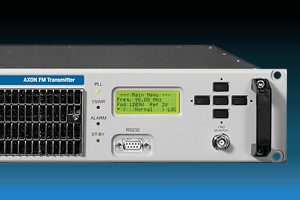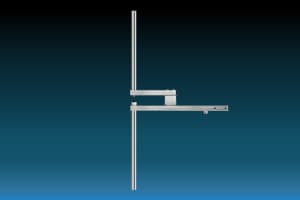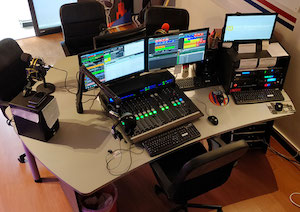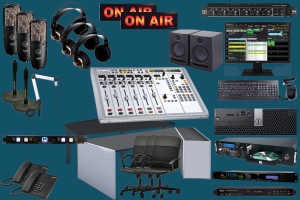Inovonics 732 Advanced Dynamic RDS Encoder

Provides all the tools to ensure an engaging and dynamic RDS presence. Connects to any playout system, broadcasting the song title, artist information, station ID and more to listeners' radios. With enhanced RT+ tagging with variable replacement capabilities.
The 732 is controlled in real time via a dynamic Web interface or a large OLED display on the front panel with easy to navigate menus. Email alerts for pilot loss and outdated DPS/RT. SNMP support. Firmware can be updated remotely via webserver.
732 Inovonics advanced coder
Features:
- Supports EAS messages and RDS alerts
- Separate RDS and MPX+RDS outputs for sidechain/loop through
- GPIO assignable (2x in, 2x out)
- Built in the webserver for the control/monitoring of all parameters
- OLED display with easy to navigate menus
- E-mail alerts for pilot loss and DPS/RT not updated. SNMP support.
- IP whitelisting for automation data ports
- Multicast UDP support
- The firmware can be updated remotely via webserver
Specifications:
Supported RDS applications
PS (Program Service Name) An 8-character station "street name" or a 128-character scrolling message (track information, promotions, advertising, etc.).
PI (Program Identification) 732 automatically calculates PI codes for the US and Canada
PTY (Program Type) Identifies the format of your station
Supports EAS messages and warnings on RDS
PTYN (Program Type Name) A further refinement of your programming type or style
TP / TA (Traffic Program / Traffic Announcement) A utility that draws attention to critical traffic or other emergency situations. Some RDS radios automatically tune in to these announcements, even overwriting the playback of CDs or MP3s
AF (Alternative Frequencies) Up to 25 frequency entries for retransmission "translators".
RT (RadioText) A 64-character block of free-to-air messages that can be called up on the faceplate of some RDS radios. RadioText is separate and in addition to scrolling-PS messages
RT+ (RadioText Plus) An updated standard for displaying song information
CT (Clock Time and Date) The 732 sends the time to RDS radios. The function is automatically set and updated with an Internet connection.
DI (Decoder Information) The mono/stereo data flag
M/S (Music/Speech Switch) The data flag for mixed music or speech only
Scheduler
Up to thirty PS, RadioText messages or commands can be programmed to broadcast at preset times on preset dates or recurring days of the week.
RDS data delay
Scrolling-PS, RT and RT+ message updates can be delayed in 1-second increments of up to 200 seconds to accommodate blasphemy and transmission diversity delays.
MPX or pilot input
An unbalanced, bridged input (BNC) accepts the composite/multiplex (MPX) signal (5V p-p, max.) or 19kHz pilot synchronization of the TTL level from the stereo generator. The 732 returns to an internal crystal time base for monophonic transmissions.
RDS output
An unbalanced 75 ohm BNC (BNC) outputs the RDS subcarrier to power an RDS/SCA input.
RDS + MPX output
The RDS sub-carrier (at 1/3 of the RDS output level) is mixed internally with the MPX input and the combined signal appears at the encoder output at unity gain.
RDS injection level
The sub-carrier level is adjustable from zero to 3.7V p-p.
Data entry on the front panel
The OLED on the front panel and the jog wheel allow the setting of all operating parameters on site.
Serial data port
An RS-232 connector on the rear panel (DB-9) accepts static encoder programming and dynamic station automation messaging. The 732 accepts all common data rates between 300 and 115,200 baud.
LAN port (IP network)
A rear panel network connector (RJ-45) is compliant with TCP/IP network protocols. Two TCP ports and two UDP ports have connectivity from multiple data sources.
A built-in HTTP server provides control and monitoring of all settings. Firmware updates can be uploaded directly to the unit.
SNMP support provides control and monitoring of all settings.
E-mails can be sent for various alarm conditions.
TA switching
The temporary TA flag is set either by a software command or by closing the contacts through a terminal strip on the rear panel. The 732 is equipped with a programmable TA timer utility to prevent violations of the TA flag.
Power Requirements
88VAC-264VAC, 48Hz-63Hz; ('universal'); 12W
Dimensions and weight
- 23" x 16" x 2" (2U); 8 lbs.
- 584 mm x 406 mm x 51 mm; 3.6 kg
Recommended products
no products avaible
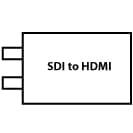 CONVERTERS
CONVERTERS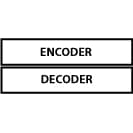 ENCODERS & DECODERS
ENCODERS & DECODERS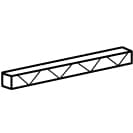 TRUSS
TRUSS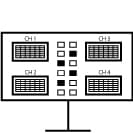 AUDIO & VIDEO MONITORING
AUDIO & VIDEO MONITORING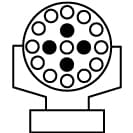 LIGHTING & SPECIAL EFFECTS
LIGHTING & SPECIAL EFFECTS TRIPODS
TRIPODS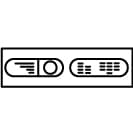 TV AUDIO PROCESSORS
TV AUDIO PROCESSORS VIDEO WALL
VIDEO WALL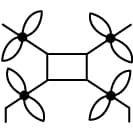 DRONES
DRONES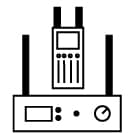 INTERCOM SYSTEMS
INTERCOM SYSTEMS TV AUDIO EQUIPMENT
TV AUDIO EQUIPMENT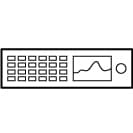 VIDEO ROUTER
VIDEO ROUTER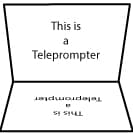 TELEPROMPTER
TELEPROMPTER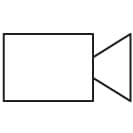 VIDEO CAMERAS
VIDEO CAMERAS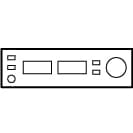 VIDEO RECORDER
VIDEO RECORDER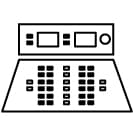 VIDEO MIXER
VIDEO MIXER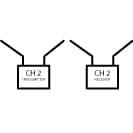 VIDEO TRANSMITTER
VIDEO TRANSMITTER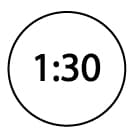 STUDIO CLOCKS
STUDIO CLOCKS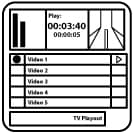 TV AUTOMATION SOFTWARE
TV AUTOMATION SOFTWARE